European Humans: 1.2 Million Years Ago
Posted by: Loren Coleman on March 26th, 2008
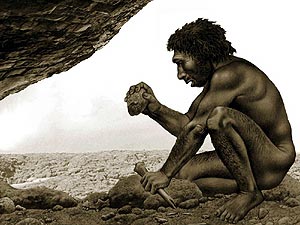
The March 27, 2008, issue of the scientific journal Nature has announced the earliest finds of human fossils in Europe, pushing back the accepted date by a half-million years.
A jawbone and teeth discovered at the famous Atapuerca site in northern Spain have been dated between 1.1 and 1.2 million years old.
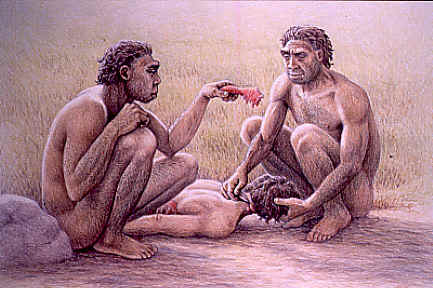
The fossils have been linked to Homo antecessor, or Pioneer Man, possibly a common ancestor to Neanderthals and modern humans, which was first found in 1997, at this same site. The new find appears to be from the same species, researchers said.
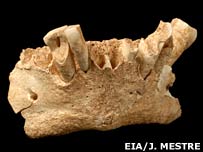
The new specimens have tentatively been classified as representing an earlier example of Homo antecessor.
The new example also bears similarities to much-older fossils dug up since 1983 in the Caucasus at Dmanisi, in the former Soviet republic of Georgia. These were dated as being up to 1.8 million years old.
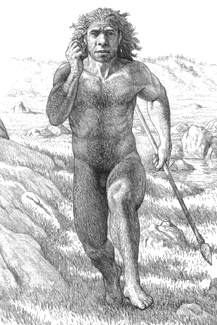
Within hominology, some have wondered if reports of Almas, or more likely the European “Wildpeople,” might be unevolved Homo antecessor, which may have been decidedly hairier than shown in the imagined reconstructions, above.
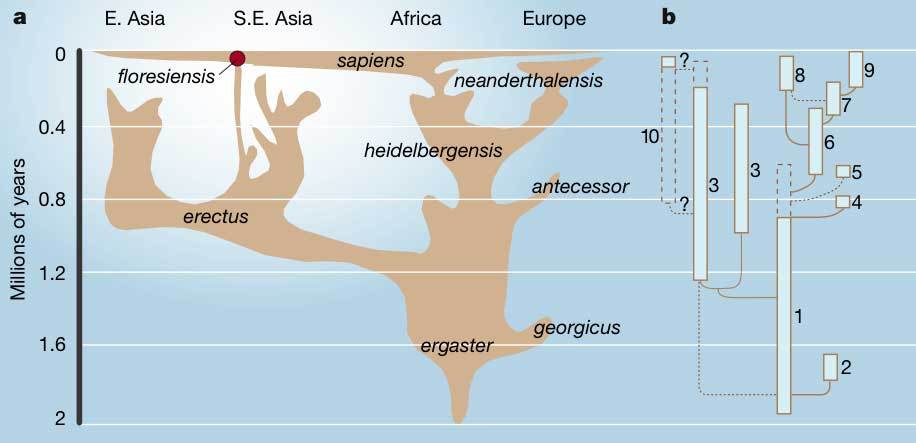
About Loren Coleman
Loren Coleman is one of the world’s leading cryptozoologists, some say “the” leading living cryptozoologist. Certainly, he is acknowledged as the current living American researcher and writer who has most popularized cryptozoology in the late 20th and early 21st centuries.
Starting his fieldwork and investigations in 1960, after traveling and trekking extensively in pursuit of cryptozoological mysteries, Coleman began writing to share his experiences in 1969. An honorary member of Ivan T. Sanderson’s Society for the Investigation of the Unexplained in the 1970s, Coleman has been bestowed with similar honorary memberships of the North Idaho College Cryptozoology Club in 1983, and in subsequent years, that of the British Columbia Scientific Cryptozoology Club, CryptoSafari International, and other international organizations. He was also a Life Member and Benefactor of the International Society of Cryptozoology (now-defunct).
Loren Coleman’s daily blog, as a member of the Cryptomundo Team, served as an ongoing avenue of communication for the ever-growing body of cryptozoo news from 2005 through 2013. He returned as an infrequent contributor beginning Halloween week of 2015.
Coleman is the founder in 2003, and current director of the International Cryptozoology Museum in Portland, Maine.










How is it that anthropologists know for centain these dates are even remotely correct?
Aren’t all these dates just educated guesses anyway? How do we know for certain these bones are that old? They could be much older or younger.
Just one more “feather in the cap” for theorists who believe man has existed for MUCH longer than scientists had previously thought.
Please read the sources for details on the three methods the team used to verify the dating.
Is the second image a depiction of… canibalism??? o.0
Either that or man was practicing liposuction much
earlier than previously thought…
Kidding aside, a quick trip to Wikipedia said that
the fossils suggest that H. Antecessor may have
indeed have practiced cannibalism-but its risky
to extrapolate too much from what, at present,
is a very small sample of fossils from a single site.
( I could quibble further that Spain is a looong
ways from Central Asia, but I’m willing to concede
that the Alma ( if the two are the same ) would
have had enough time to migrate…wink.)
Where does antecessor fit with heidelbergensis?
How do they know the extent of the brow ridge from a jaw?
Homo antecessor reconstructions above are based on skull materials found before this most recent discovery. Brow ridges are very apparent in that fossil material.
I’ve added a chart to show what is thought to be the relationship between recent and older fossil hominid finds.
Very interesting. Thanks for the info, Loren.
Not to worry, though.
We’ll always have some small comforts to hold on to.
Fossil remains of higher primates are not found in North America. Never have been. Never will be. EVER.
Count on it. That’s the model, after all.
Great story here. I came across a very well produced spanish documentary (english subtitles) produced in the last year which goes into really great detail (more than the article which, fine as it was, could have been deeper for my taste) and explanation on this find and its context, in case anyone is interested. I was enthralled and their explanation of the cannibalism was quite sensible as well as the significance of the cave bear bones also found.
It’s about an hour…well spent if your into these things:
http://www.archaeologychannel.org/content/video/atapuerca.html